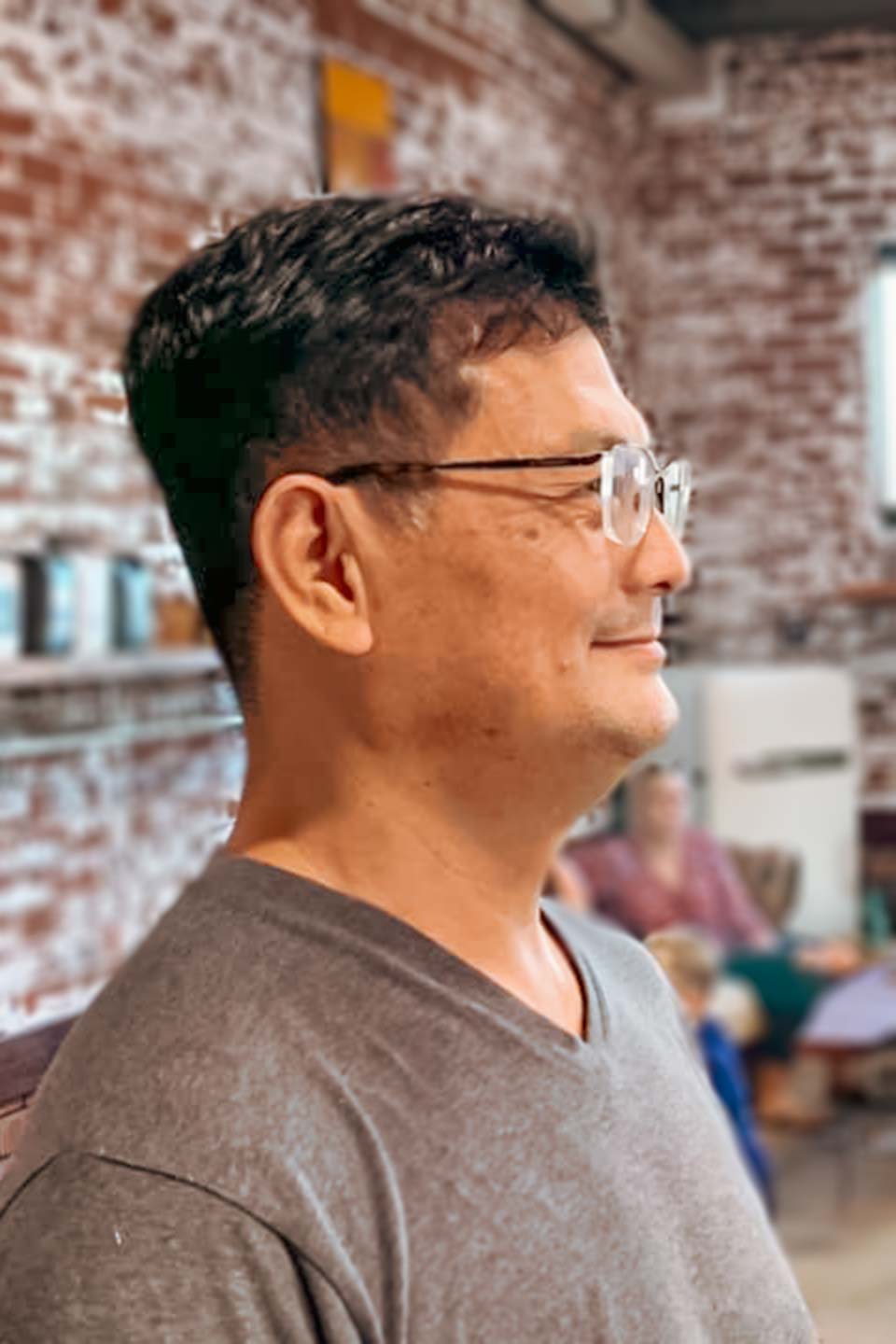
Small Nation with Big Potential: Invigorating East Timor with Coffee
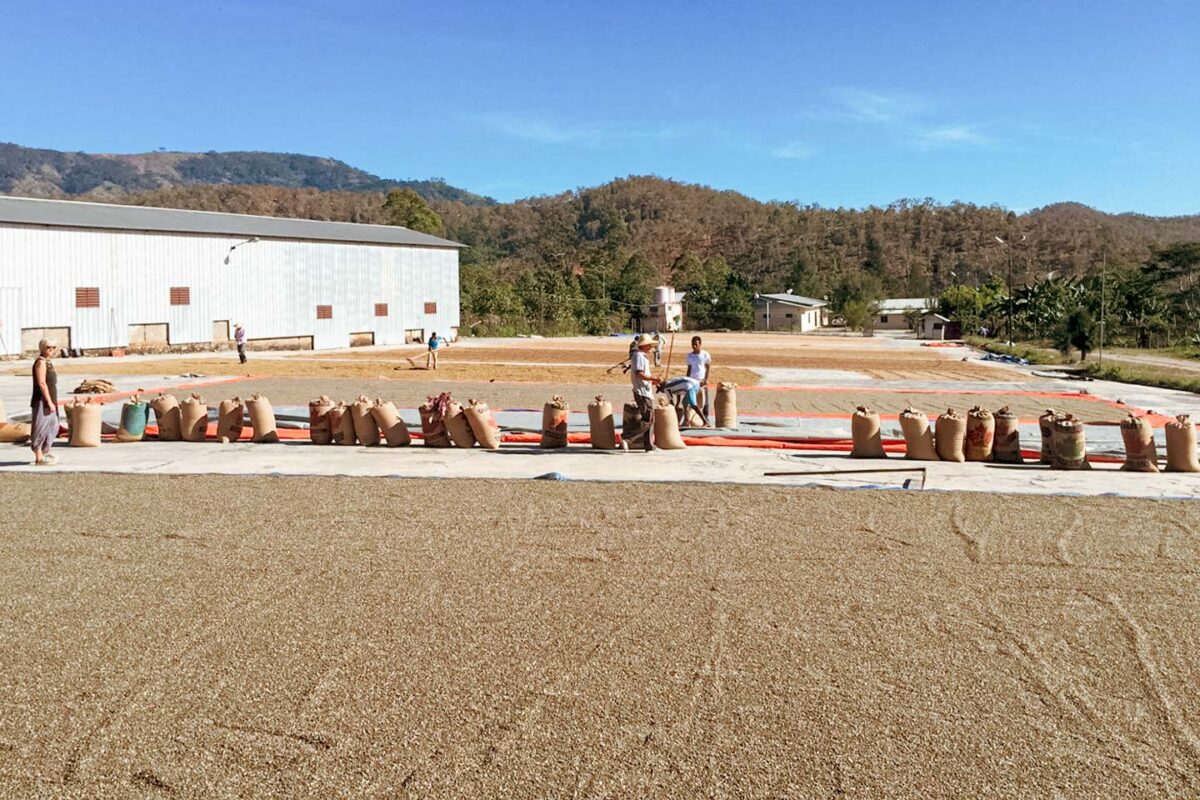
Timor Global, established in 2005, is a pioneer in the East Timorese coffee industry. As one of the first companies to recognize the potential of East Timorese coffee, they began producing and exporting green beans. With government approval, they revitalized a 3,000-hectare plot of dormant farmland. They also own one of the largest wet mills in the country.
Initially focused on commercial coffee, they’ve now improved productivity and increased the amount of specialty coffee to 50% of all production by training small-holders and introducing machinery. Despite facing challenges like political turmoil and poverty, Bobby Lay, managing director and one of the founding members, remains optimistic and envisions a bright future for the first new sovereign state of the 21st century.
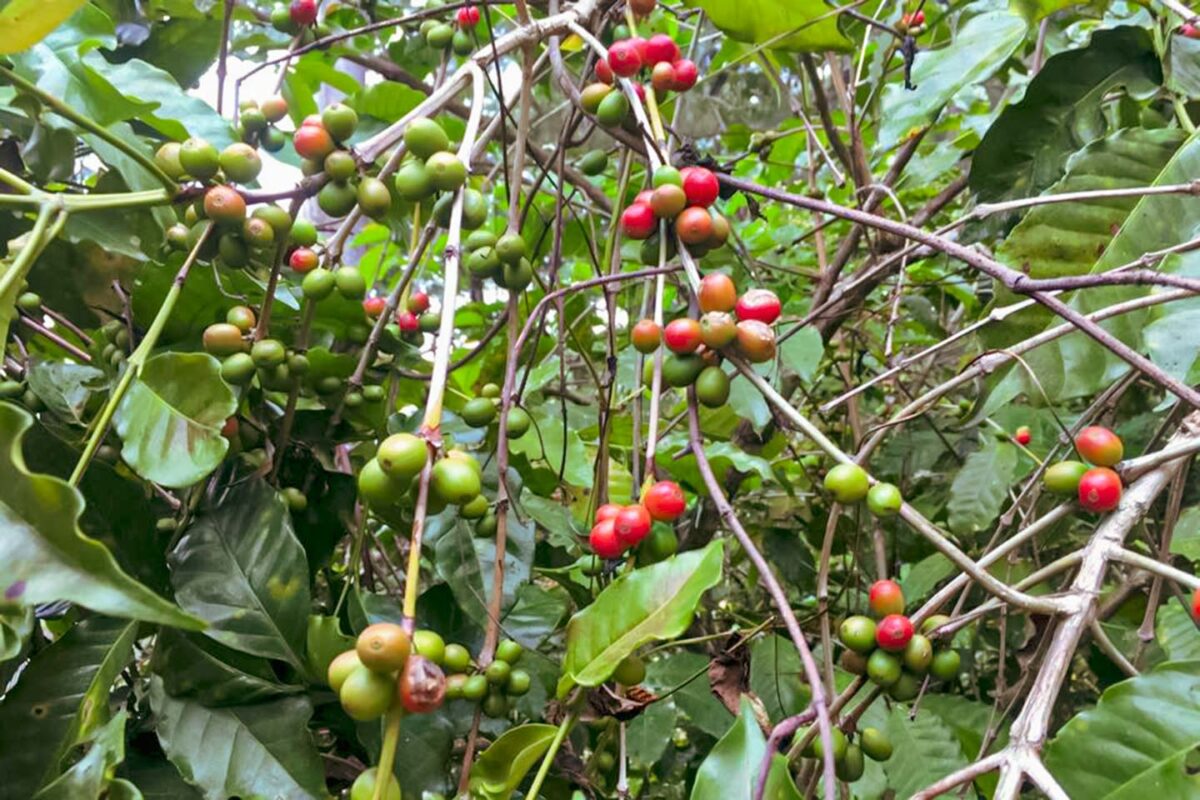
Spontaneous beginning of coffee journey
If you are a coffee connoisseur, you may know that Catimor is a cross between Caturra and Timor Hybrid. Timor Hybrid, itself a hybrid of Arabica and Robusta, was discovered in 1920 and spread across the world in the 1950’s. Its name suggests its origin, present-day East Timor, and it played a significant role in preserving coffee-producing regions.
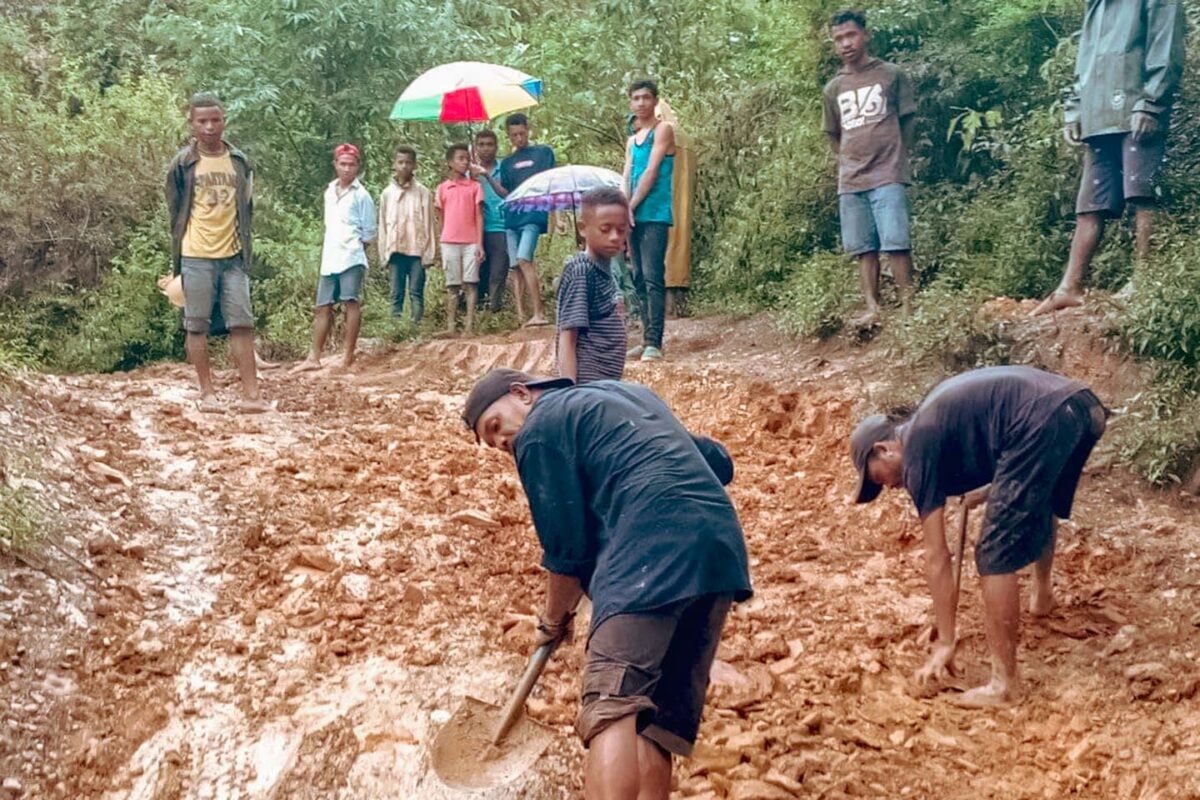
East Timor was a colony for centuries, under Portuguese rule until 1974, and then annexed by Indonesia soon after declaring independence in 1975. In August 1999, people went to polls in a referendum on independence. But some in the opposition campaign turned violent, looting and setting buildings on fire. As a result, 75% of the population were forced to flee their homes, and more than 70% of the infrastructure was destroyed.
In 2002, East Timor officially became independent with the help of the United Nations Transitional Administration in East Timor (UNTAET), established in October 1999. However, civil unrest broke out in 2006 when soldiers took to the streets in protest, leaving 150,000 people internally displaced. Relief efforts continue to this day, with assistance from other nations and non-governmental organizations from developed economies.
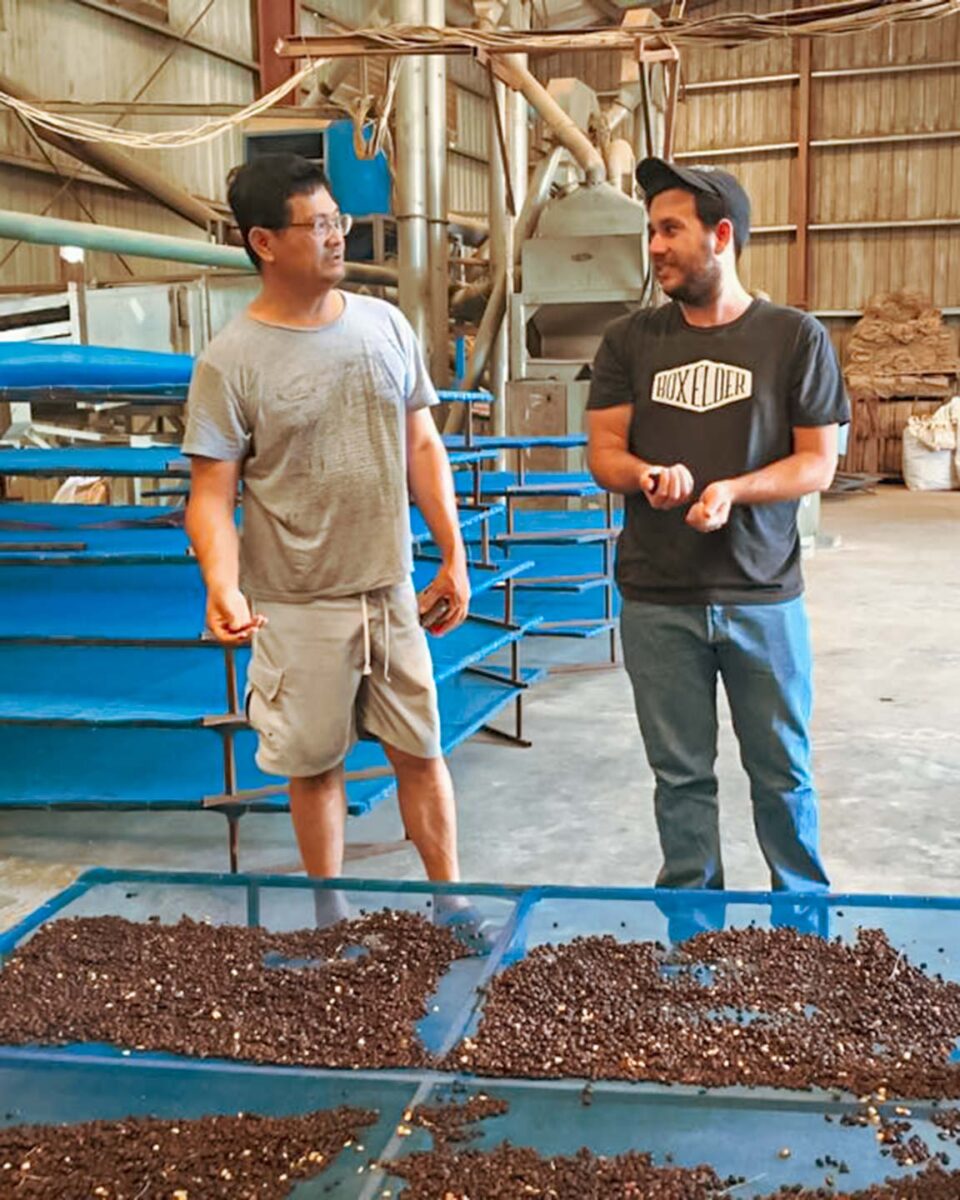
Bobby’s father and uncle are of Chinese descent, and they owned a coffee export business in East Timor during Portuguese rule. Bobby was born during that period, but at the age of 14, he and his family moved to Australia when East Timor came under Indonesian control.
In 1999, Bobby and his cousin returned to East Timor to reclaim their family’s property that was lost during Indonesian rule. This marked the beginning of Bobby’s journey in the coffee industry.
“Australia had been my home for so long, I wasn’t used to East Timor’s way of living. I never thought I’d end up back here, but returning was a natural course of events for me. I didn’t have a specific plan in mind, but the process of reclaiming our family property took longer than I anticipated. It felt like time was just slipping by while I waited.
As time went on, I realized that I might as well make the most of my time in East Timor. Coffee was one of the few viable exports from the region, and it was a natural choice given my father and uncle’s background as coffee exporters. They also encouraged me to take over their business.”
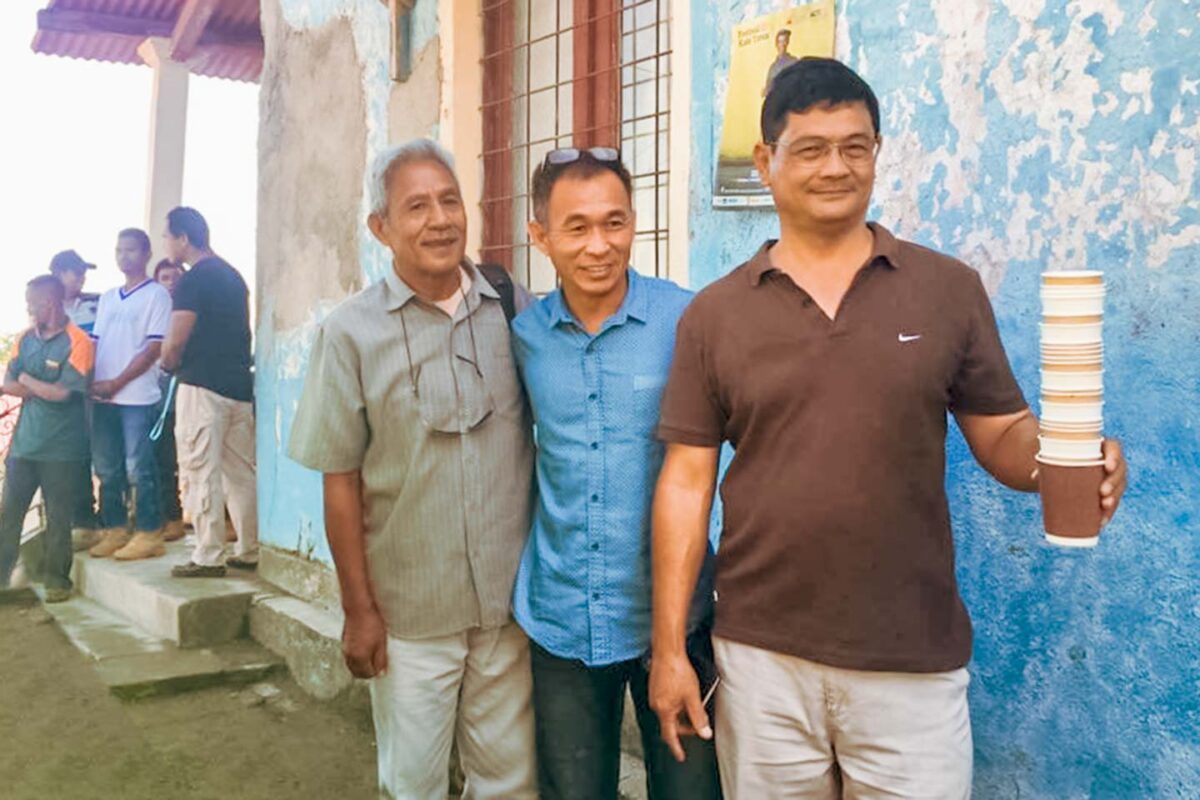
Bobby began his coffee journey by starting a business with a friend and selling East Timorese coffee to multinationals through Singaporean buyers. During this time, he met a seasoned coffee expert who had been handling East Timorese coffee for over two decades. The three formed a partnership and were later joined by another person from Singapore. Together, they established Timor Global in 2005, making it the first foreign-owned business approved by the East Timorese government.
Ever since independence, East Timor has struggled to reduce its reliance on oil and natural gas for revenue and break away from its monoculture economy. This was a concern shared by Bobby and his partners as well.
“We were driven to develop East Timor and saw coffee as the key. No other crop compared in our eyes, and we believed there was huge potential for growth.”


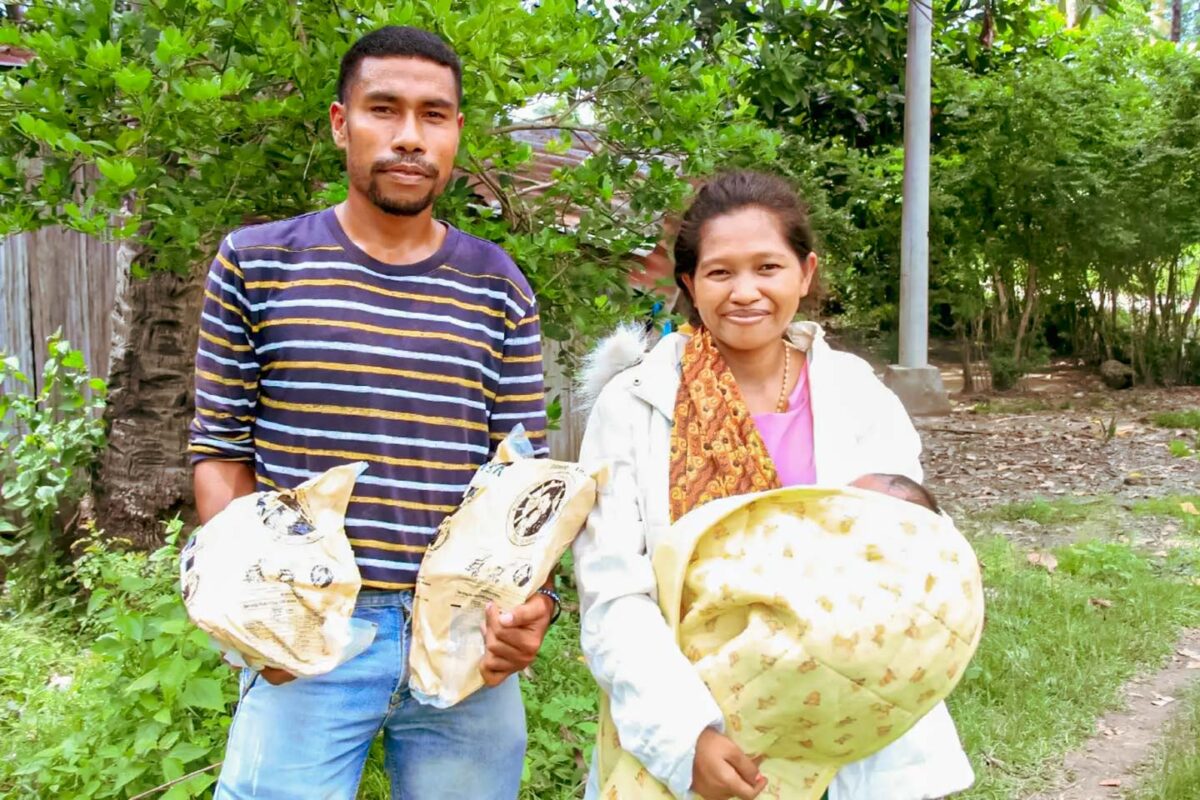
No health, no coffee
In the early days of Timor Global, the company’s focus was not limited to just exporting coffee. East Timor is one of the poorest nations in Asia, and in 2021, its nominal GDP per capita was ranked 155th in the world at $1,754. Addressing poverty and malnutrition were among the company’s top priorities.
In 2010, Timor Global teamed up with the World Food Programme to distribute nutritious foods to expectant mothers and children under five. Under the joint initiative, the World Food Programme bought maize and soybeans from local farmers, which Timor Global processed into vitamin-fortified foods.
“When people in the community have enough food, it makes a real difference in the quality of their work, and that can help alleviate issues in the community. We’re the only company that built a factory at the request of the World Food Programme. It’s not just charity, we make profit from it. But our primary goal is to support the local community.”
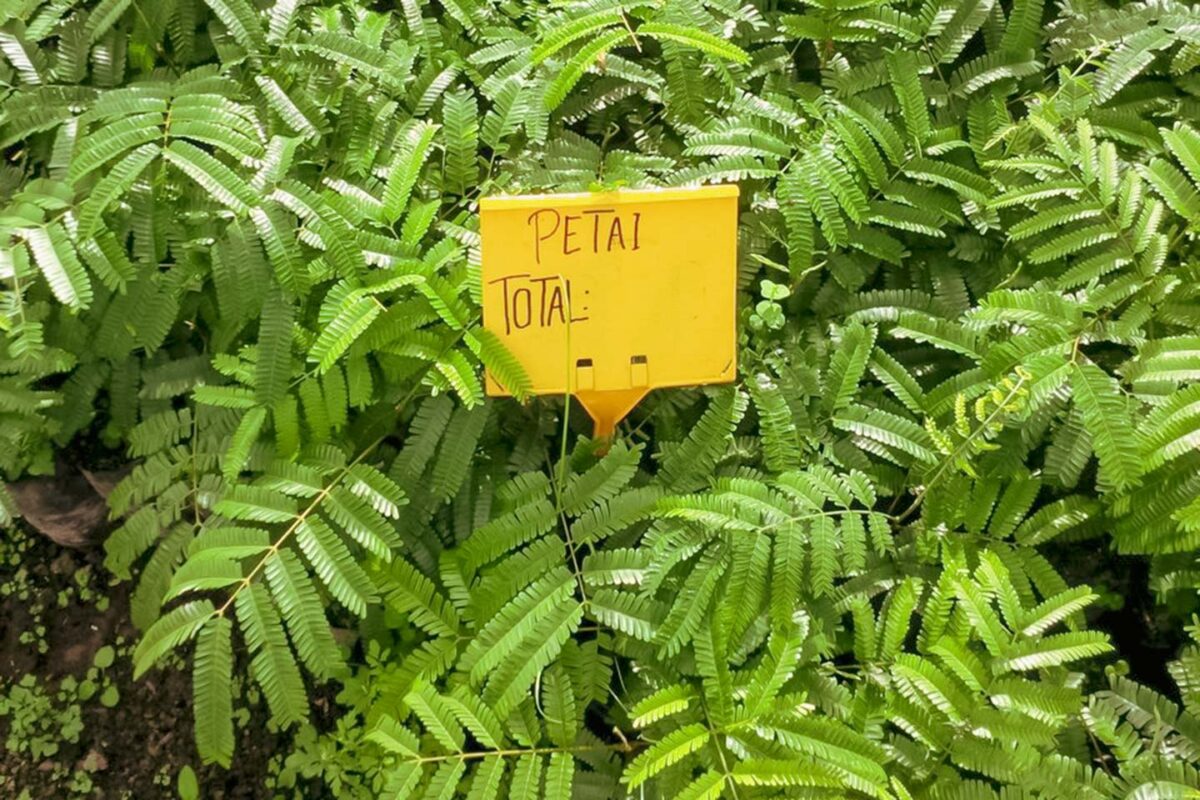
To further support the community, Timor Global also encouraged coffee farmers to cultivate konjac, passion fruits, black pepper, and legumes in addition to coffee. This diversifies their income sources and provides a food reserve in times of crisis.
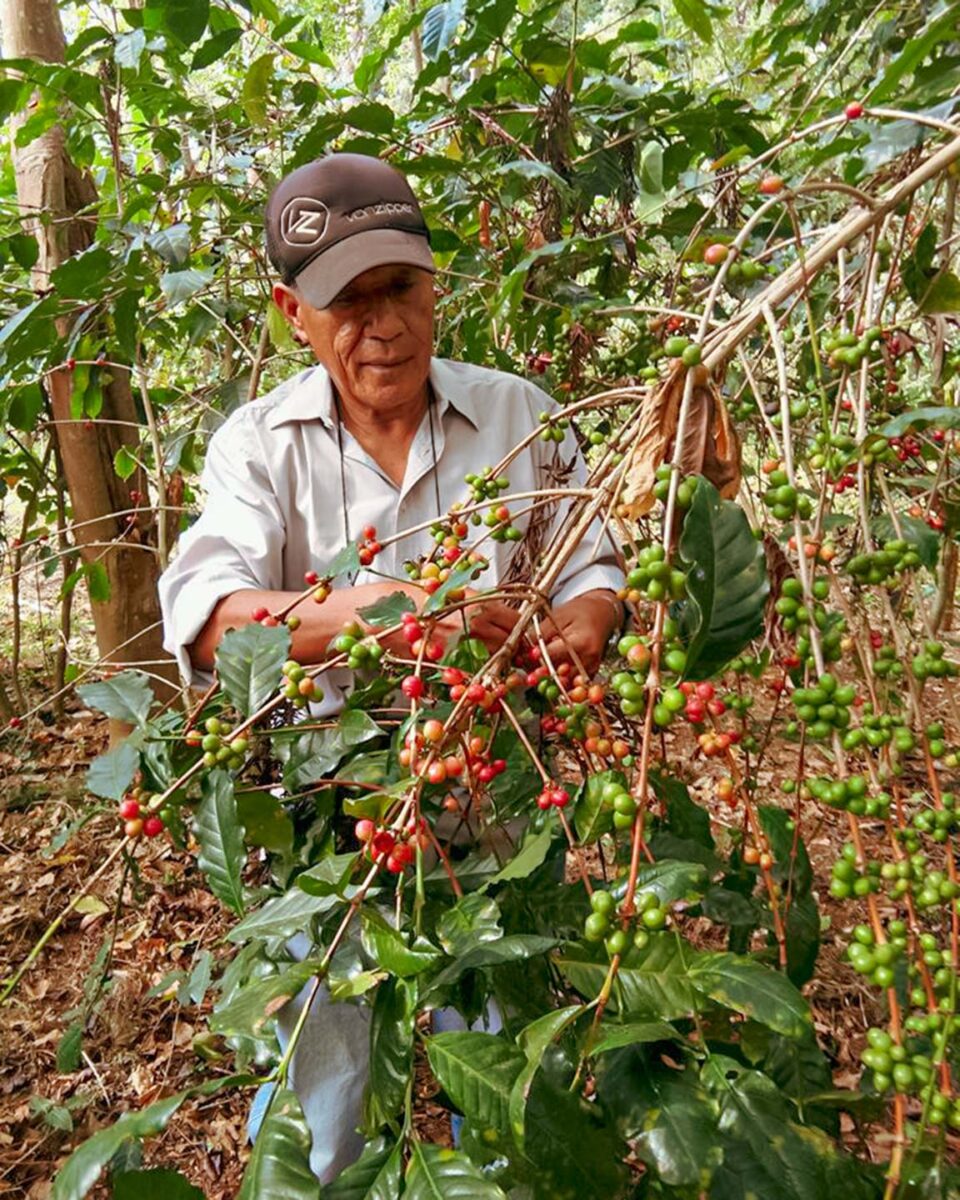
However, Timor Global faced challenges even in its core business of coffee production. In East Timor, farmers typically do not prune coffee trees, allowing them to grow wild until harvest. This resulted in trees reaching four to eight meters in height, more than twice their normal size. When coffee trees have excessive branches, they compete for nutrients, resulting in a decrease in the harvest volume.
“Farmers used to believe that cutting branches would result in less harvest and income, so they didn’t understand the importance of pruning. We’ve been educating them on the benefits of pruning for a while now, and lately the government has stepped up efforts to revive the productivity of older trees. This process is called stumping , where old trunks are cut to promote the growth of new buds. The farmers have been putting in a lot of effort to implement this.”
Many coffee farmers in the region practiced a technique called “strip-picking,” where they would harvest all the cherries, regardless of their ripeness. This often led to the collection of unripe cherries, with ripe ones making up less than half of the total harvest.
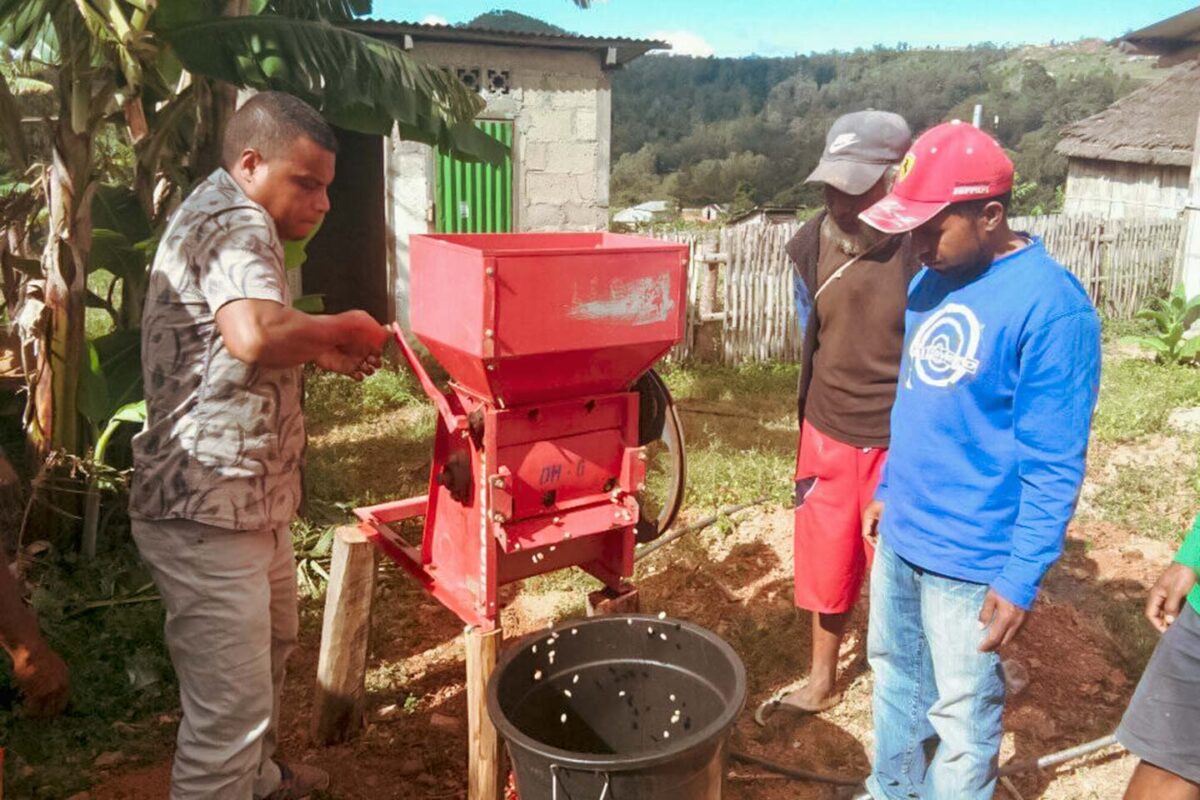
Proper management for long-term profit
For Bobby, teaching the farmers about the importance of proper harvest and processing has been a major focus. He has provided them with free pulpers and helped them to buy micro-mills to increase efficiency. Nevertheless, convincing the farmers to adopt this new approach wasn’t easy.
“Let me give you an example with production management. A lot of the farmers think that if they sell more dry parchment, they’ll make more money, so they try to make as much of it as they can. But they often don’t take into account the downside of that. They don’t have the proper equipment, which means the cherries end up sitting around for too long and fermentation sets in. That’s why I always tell them, ‘Make sure you have a good drying area and keep an eye on the volume.
I also explain to them that they can sell wet parchment instead. At high altitudes, it takes about three to four weeks to produce dry parchment, but you can sell wet parchment every day or every other day. Sure, the profit rate might be lower, but your turnover will be much higher. In the long run, if you do both, you’ll see more profit. I just need to help them understand this reasoning.”
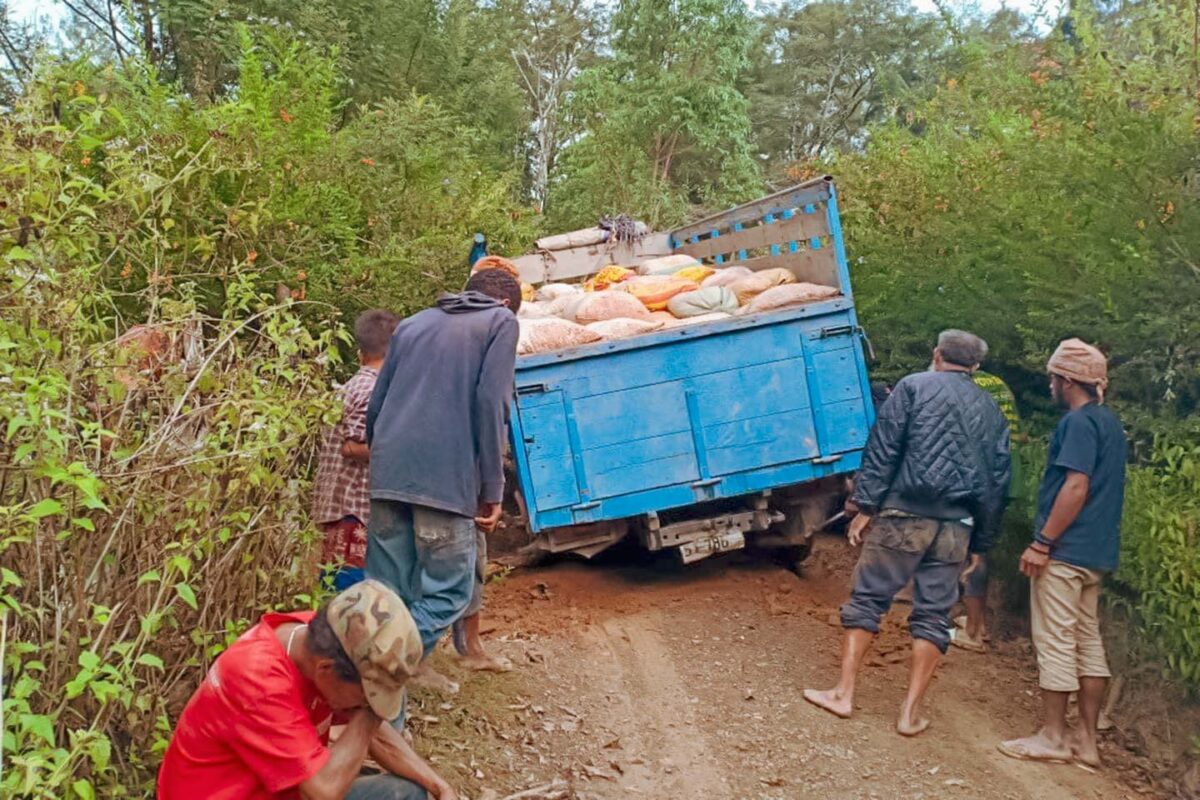
The complexity of land ownership in East Timor presents another bottleneck in production. In East Timor, the farmer and the landowner are often separate, with the owner being absent since independence. This results in the de facto “illegal occupation” of the land by the farmer. This can potentially cause conflict, particularly if the farmer is using privately-owned farmland, not communal farms.
In addition to land ownership, the coffee transportation system in East Timor presents another challenge. The inadequate infrastructure and rough road conditions make it difficult to transport coffee from farms to markets. This issue is particularly concerning, as estimates suggest that up to 30% of all agricultural products in the region never reach their intended destination, putting a significant strain on farmers’ livelihoods.
“Even when crops do make it to markets, they are no longer fresh. It takes at least four to five days for the products to reach us. And in that time their quality drops. On top of that, the shipping fees are very expensive.”
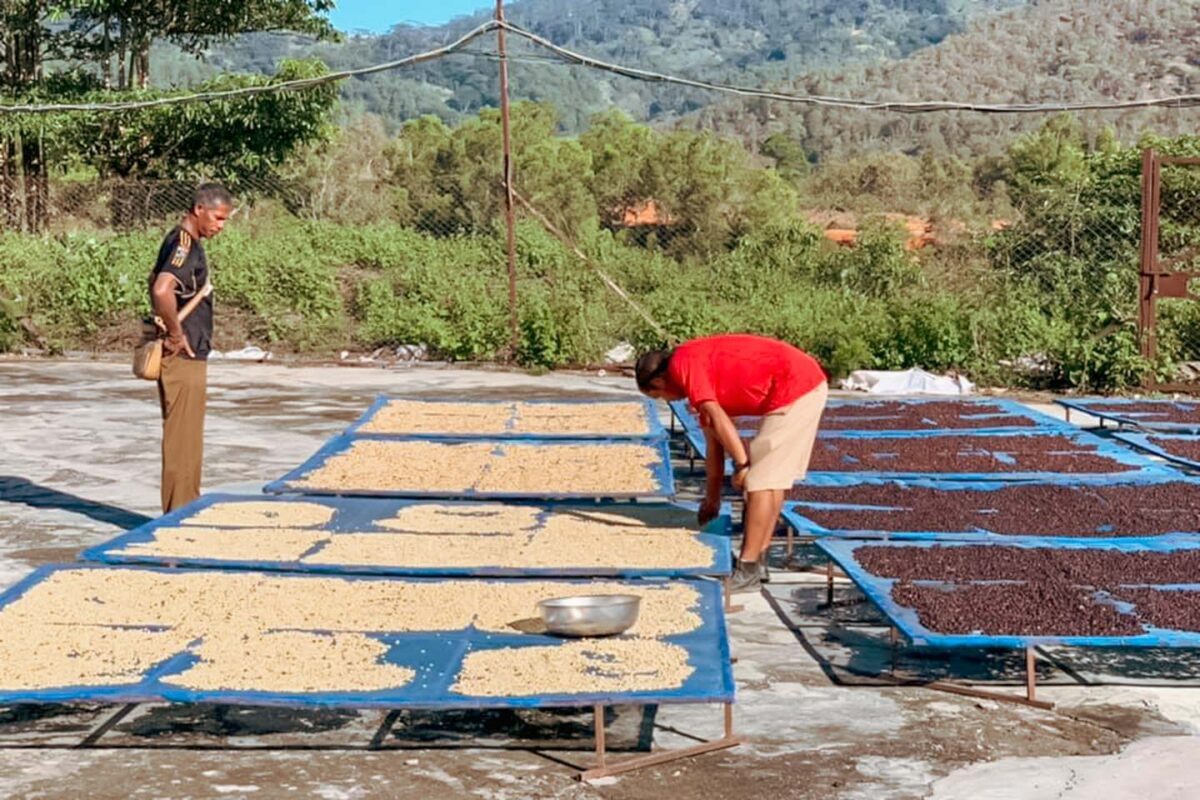
Despite its challenges, East Timor remains ideal for coffee production. In 2009, Timor Global started to produce wet-hulled and fully washed specialty coffees to diversify its revenue streams, in addition to Robusta and Arabica. By 2016, the company added natural and honey processed coffees to its lineup. Today, over 50% of its output is specialty coffee.


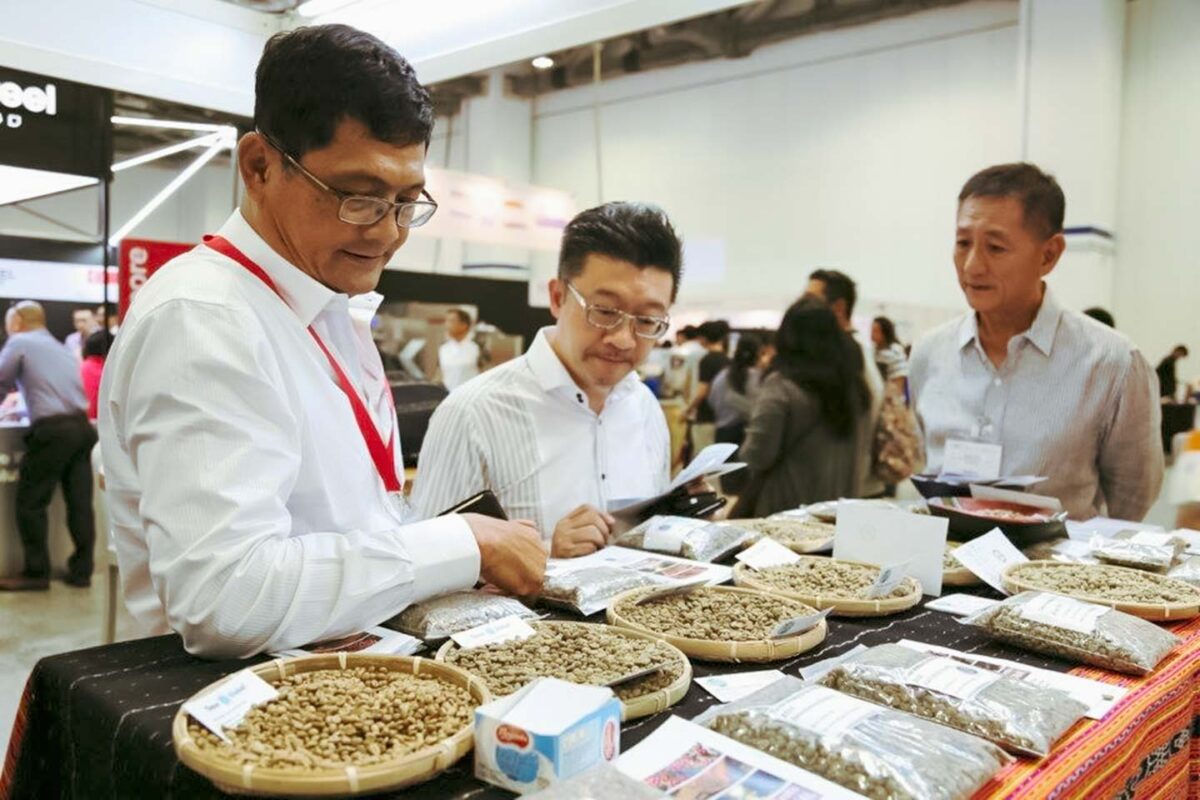
Invigorating East Timor with farmers
The hard work that Bobby and the farmers have put into their coffee is finally starting to pay off. East Timorese coffee is gaining recognition in the industry, and Bobby is proud to report that people are loving his coffee when they try it at trade fairs. As more people worldwide seek out organic options, East Timorese coffee has a natural edge. Thanks to the country’s legal requirement for organic production, its coffee is grown without any harmful pesticides or chemical fertilizers, making it a naturally appealing choice.
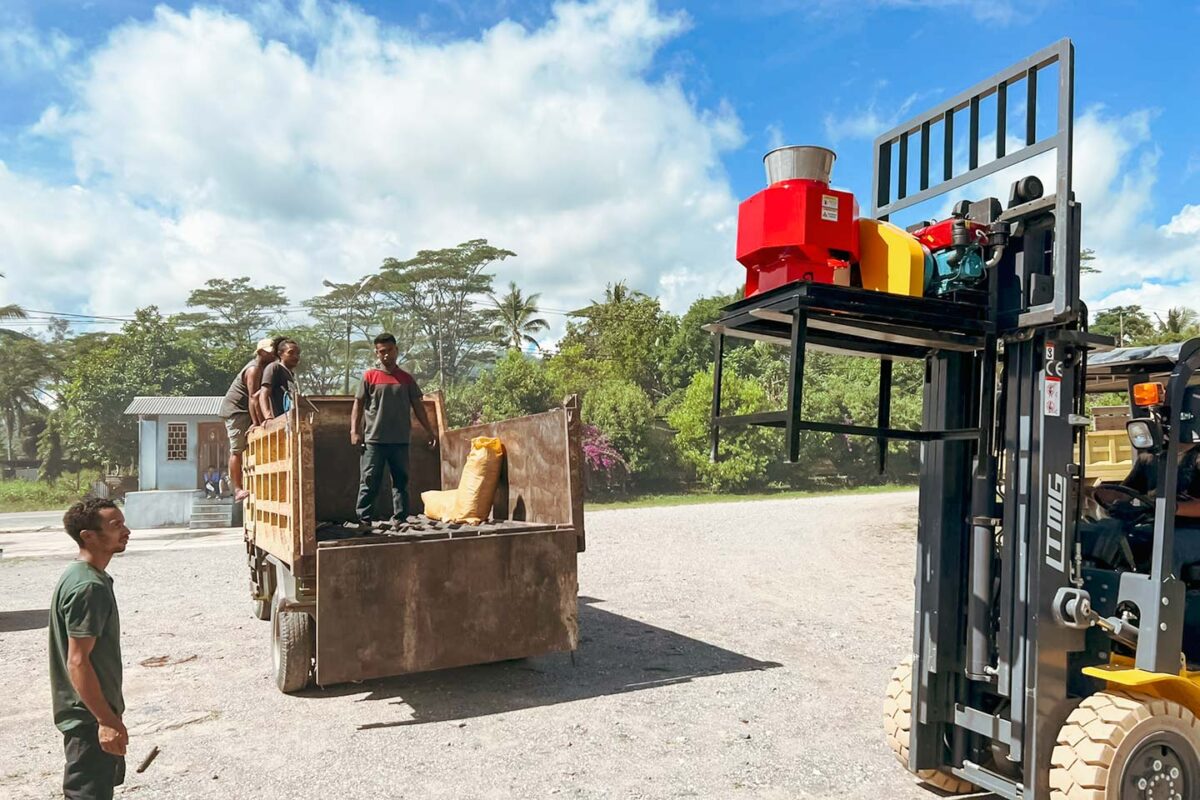
It’s not just the quality of the coffee that’s changing, but the attitudes of the farmers are evolving, too. As more and more farmers have requested to own their own pulper, Timor Global listened and made a change: Instead of just lending out pulpers, the company now offers the option for farmers to buy them. The purchase price is deducted from coffee sales over time. And once the payment is complete, it’s all theirs.
“We’ve seen a lot of progress in the past few years, with more farmers adopting specialized techniques for harvesting and processing. This has led to an increase in their income, and they’ve become role models for other farmers to emulate.
With around 30 to 40% of the 1.3 million people in this country relying on coffee for their livelihoods, our aim at Timor Global is to support as many farmers as we can to help them succeed while raising the profile of East Timorese coffee on a global scale.”
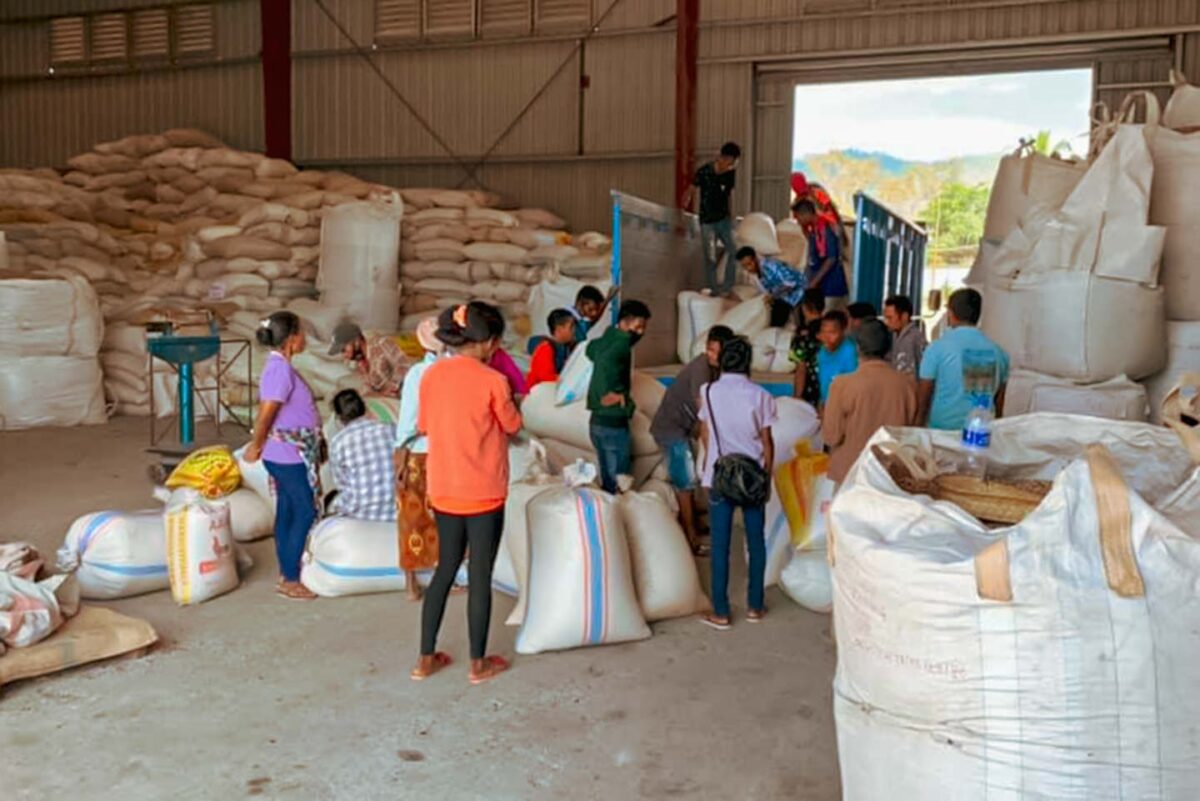
Despite the growing recognition of East Timorese coffee, production levels remain modest, with a total production of just 7,500 tons in 2020. East Timorese coffee is sometimes classified as Indonesian coffee in the international market, where the latter reached 770,000 tons in 2021. Regrettably, some of Timor Global’s clients market their coffee as Indonesian coffee.
“My father used to export coffee during Portuguese rule. And during that time, East Timor was producing around 50,000 to 70,000 tons of coffee in 1974. Of course, comparing now and then isn’t as simple since working conditions have changed. But in my opinion, East Timor is still five to 10 years behind what I had hoped for. I’m determined to make major advancements in the next five years.
To help the farms, it’s important that we stay informed about the latest market trends and price movements to support the farmers. Additionally, there are still some unique varieties in East Timor that have the potential to add even more depth to our cupping profiles. If we can successfully bring them to the market, we can further expand the range of flavors we offer.”
With the recent establishment of the Asosiasaun Cafe Timor, just about anyone has access to processing techniques and market prices these days. This development has served as a source of inspiration for farmers and has boosted their motivation.
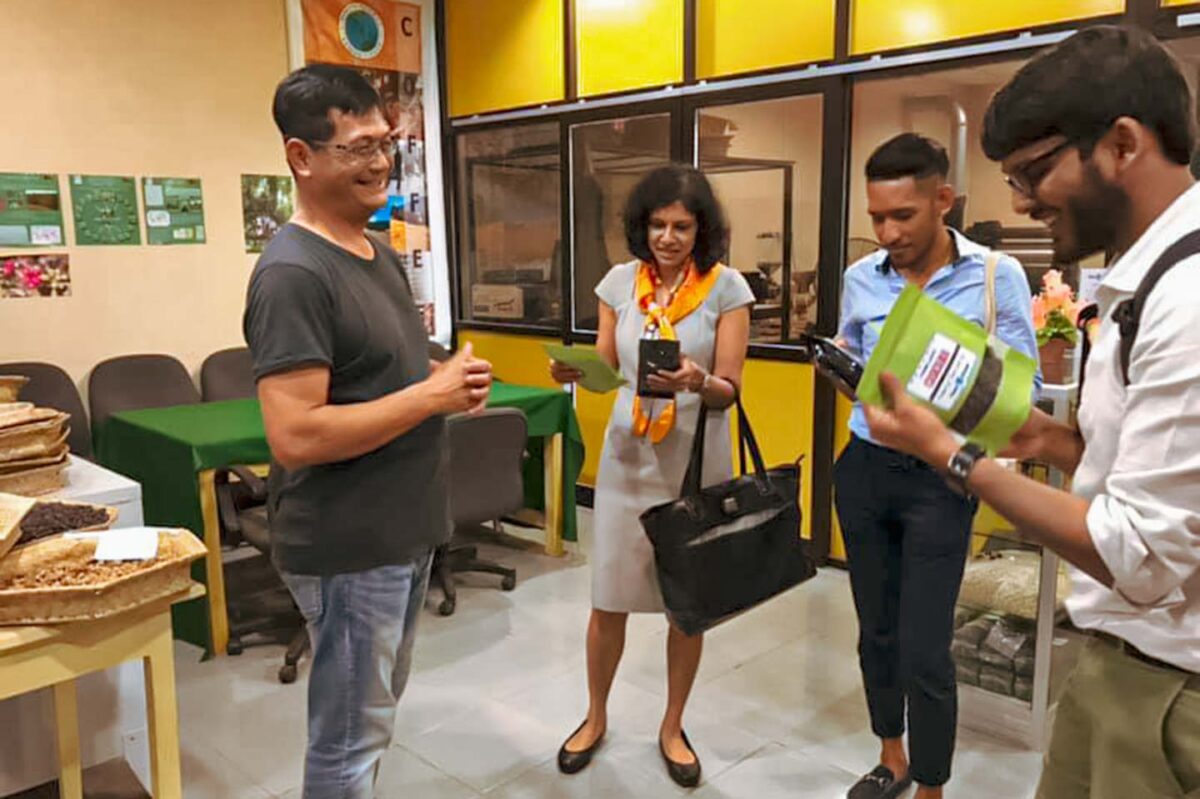
“Even though East Timor is a small nation, it’s starting to get recognition on the global stage. While growth has been a bit slow going over the past 10 years because of political instability and other factors, once things settle down, we are going to grow at a breakneck speed thanks to our geographic advantage. We are located between Australia, New Zealand, and ASEAN nations like Indonesia. We may not be a mature country just yet, but that just means we have a whole lot of potential waiting to be unlocked.”
After more than 20 years have passed since Bobby returned home as if driven by fate, he reflects on his decision and how it has shaped his life.
“At times, I wonder why I chose this path because living and working in East Timor can be challenging. But overall, I enjoy my job and life here. My ultimate goal is to invigorate East Timor in any way I can and give back to my home country. I’m not sure if coffee is my destiny, but it is certainly a tool that helps me pursue my aspirations. All I can do now is give it my all and keep pushing forward.”
Text: Takuya Takemoto